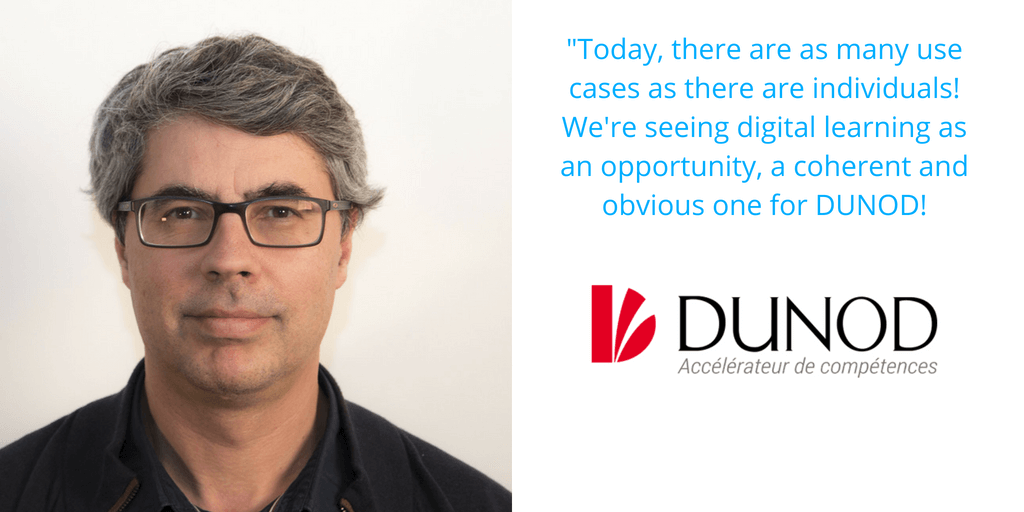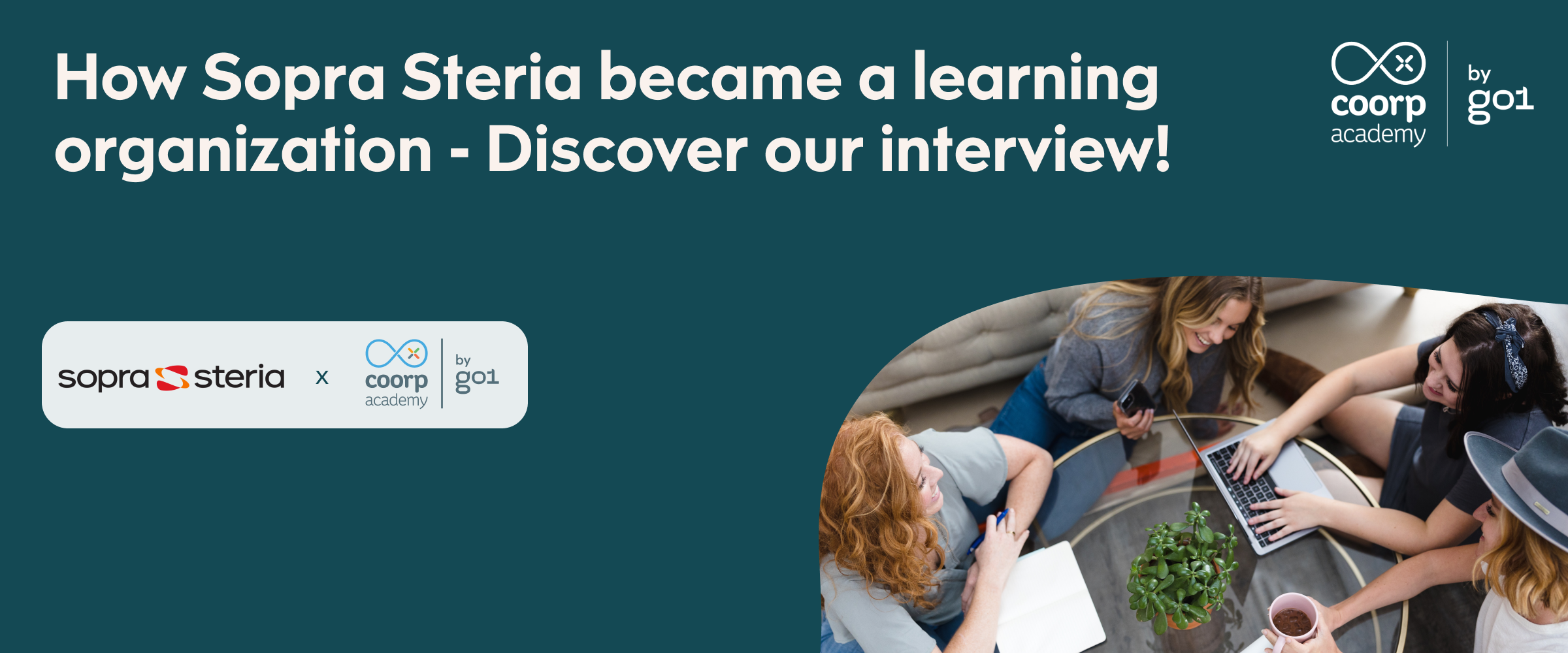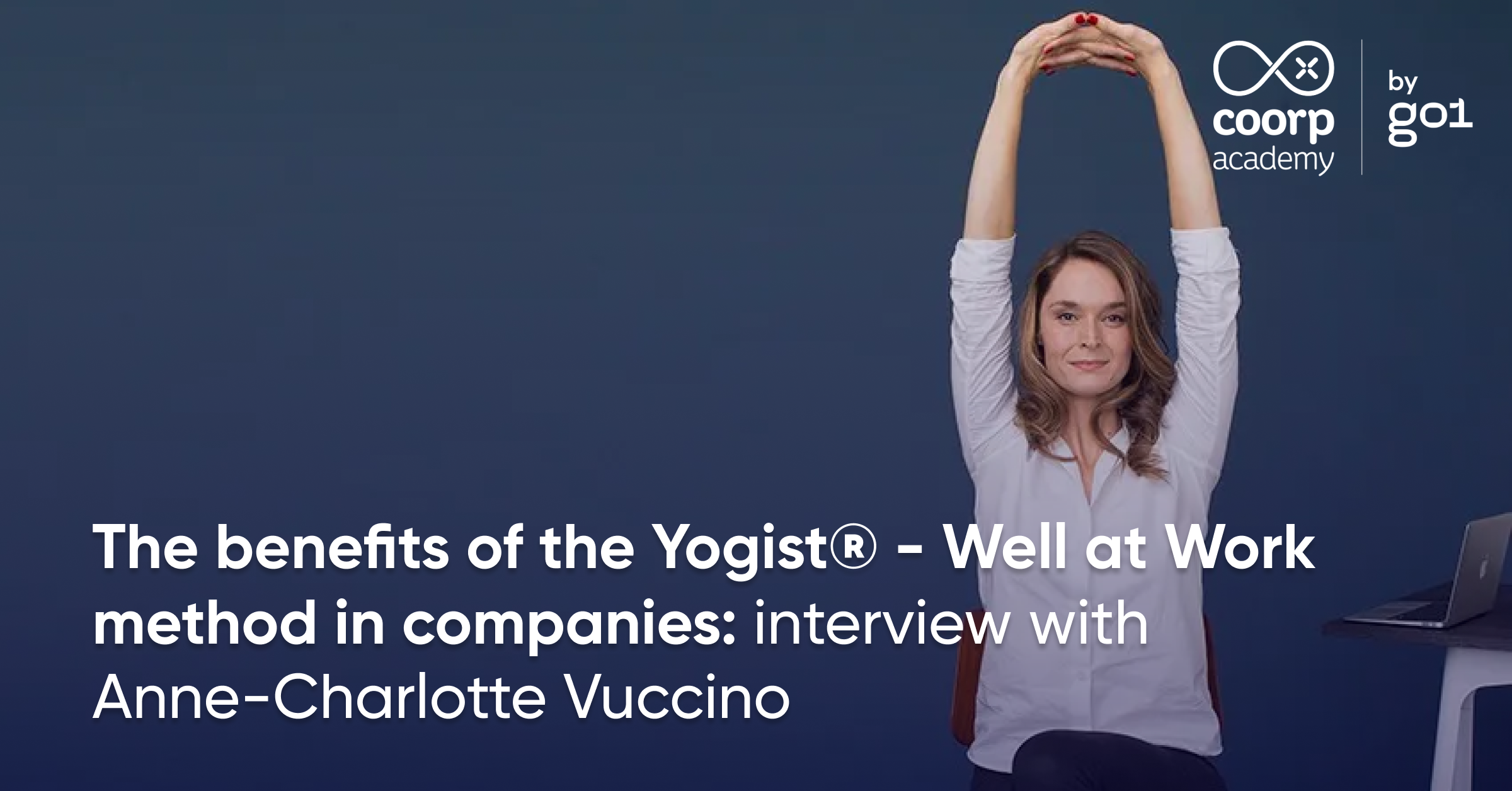Exclusive interview with Eric Pommat, Director of Development at DUNOD
Interview

Coorpacademy has started a partnership with les Editions DUNOD.
The famous French publishing house of the Hachette Livre group is – among other things – the 1st business publisher in France.
With strong brands like Mercator, Strategor, Communicator and iconic collections such as La Boîte à outils, les 5 Clés or 2h chrono, DUNOD just keeps on innovating.
From books to digital learning, DUNOD successfully accompanies all employees from any types of companies on their training needs, targeting operational topics but also soft skills (creativity, self-confidence, stress and time management…) with a proven pedagogical approach.
In co-edition with this partner, we just launched a first course on Mindfulness at work. 2 others courses are already scheduled: Boost your creativity with Mind-Mapping and Being efficient at work in the digital age!
To celebrate this new partnership, we sat down with Eric Pommat, Director of Development.
Dunod is a 2 centuries-old publishing house. How do you think books and digital learning can – and must – cohabit in the lifelong training of people?
Today, our books already coexist with digital learning. Just as they already coexist with their ebooks versions or the corporate training products ecosystem – they’re part of it – such as instructor-led training or news conferences, the galaxy of free products such as YouTube videos, blogs, MOOCs and social learning; you can also find in this ecosystem more innovating pedagogical formats like reversed tutoring, peer-to-peer or learning expeditions…
These offerings coexist because they meet different needs and different ways of consumption. It’s really good news for learners to access this diversity of formats, we’re happy about that.
At Dunod, beside the product, we’re interested in the ways of content consumption and use cases. They evolve in corporate training, because of the abilities offered by the digital era, of the training needs which changed – today, we must learn everyday – and they are being facilitated by the progressive evolution of the sector’s reglementation.
Today, there are as many use cases as there are individuals! We don’t see the digital learning emergence as a threat to books because they are two different ways of consumption. On the contrary, we’re seeing that as a nice opportunity of development, coherent and pretty obvious for a publishing house like us: digital learning is a sector very close to publishing. Way closer to publishing than instructor-led training, for example! We have content, a vast network of experts, etc.
With its books, Dunod was already a major player in distance training… 2 centuries ago!
Why partnering with Coorpacademy to make the knowledge from your books being transmitted in a different way? How do you think this digitalized and gamified diffusion will bring value to the content?
What we really liked about Coorpacademy, before all things, is the concept of the platform: a homogeneous and innovating pedagogical format (inspired by reversed pedagogy), but also engaging (short content, with granularity and gamification), in phase with the market.
Coorpacademy also carries a clear promise to the users and an important editorialization of content, which is rare in the digital learning sector – it is in phase with our publishing house DNA. They took strategic bias in which we find ourselves: seek for quality regarding content, pedagogy, or motion design videos, for example.
We found in the courses Dunod by Coorpacademy a new, original way to spread our content by meeting new use cases, targeting new learners and new markets: BtoB, the English-speaking world for example.
And we also want to believe in the “Netflix-like” platforms models. This is in phase with innovation and the announced reform of corporate training.
Yes, Coorpacademy is ticking a lot of boxes.
Our first course on Mindfulness at work has just been released. Among the topics studied in the course, there are the identification of our “attention thieves”, the deconnexion to find a better connexion to what matters, or exercises to reinforce his/her attention. Can you talk to us about this course?
To create the course “Mindfulness at work”, we used the expertise of Nathalie Va, Laethem, who published with Dunod the Toolbox of Minduflness.
We’re now facing what we could call the economy of attention. Especially in this digital era. As Tristan Harris, Google ex-product philosopher, said, “Technology is hijacking our minds”.
As Cal Newport said in his book Deep Work, we work in an era where our attention is sought-after by a gang of engineers working for companies having a lot of money. Our attention is now a scarce and valuable resource, hijacked by the Silicon Valley giants.
In our professional lives – and the border between personal and professional is more and more blurry – we go from reading our emails to a WhatsApp message, before checking the Twitter news feed, and then our Facebook notifications…
We’re “grasped” and we lose connection with ourselves.
Mindfulness is a secular technique of personal development, which allows us to stop the automatic pilot for one moment, focus on oneself, focus on the present moment: our emotions, sensations, thoughts, what we are doing and the situation itself.
Scientific studies show that mindfulness decrease the level of cortisol in the body, which is the stress hormone!
When you’re practicing mindfulness, you have less tensions and are more calm, you open your perception field and it allows you to be more comprehensive of you and others.
The goal of this course is to discover the benefits of mindfulness and to do the exercises instantly, like remembering oneself.
Thank you Eric!


